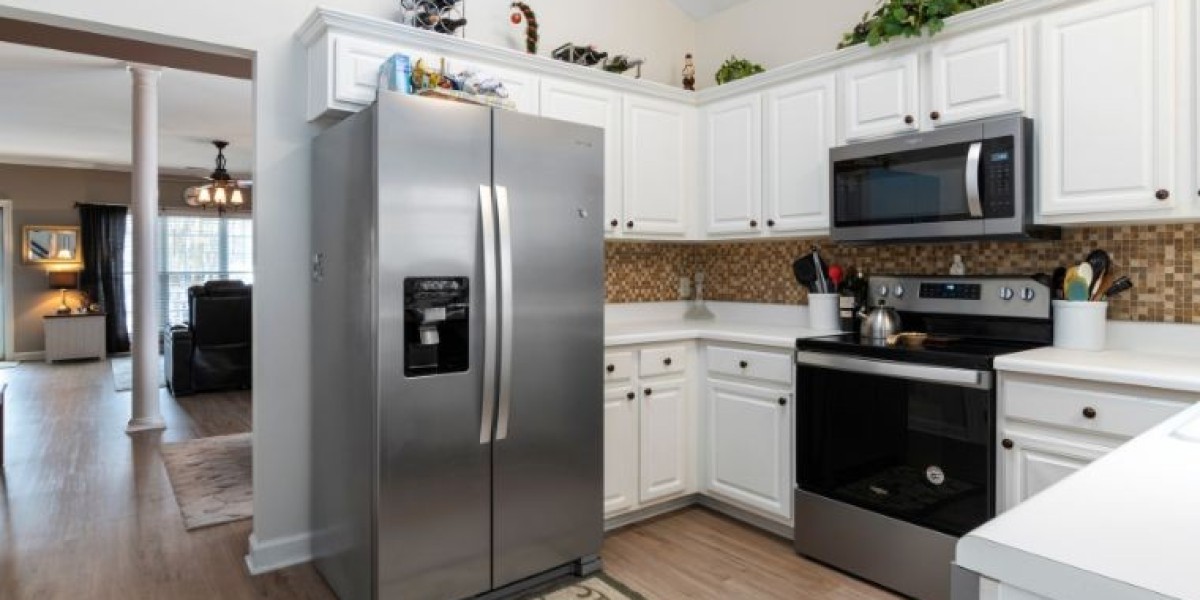Ever stood in an appliance store (or scrolled endlessly online) trying to figure out whether the inverter model is actually worth the extra dirhams? You’re not alone. Most shoppers feel a bit torn—especially when they’re trying to shop fridge freezers online in Al Quoz, Dubai and every product page throws fancy words at them. The whole “inverter vs. non-inverter” debate can feel like one big technical puzzle. But don’t worry; we’ll make this simple, friendly, and surprisingly interesting.
Let’s walk through what really matters, one clear step at a time.
Why This Comparison Matters More Than You Think
Choosing the right cooling system isn’t just about storage or design. It affects energy bills, food freshness, noise levels, and—believe it or not—how long your appliance survives in the UAE climate.
Here’s the thing: inverter technology isn’t a fad. It’s a genuine upgrade in how your refrigerator behaves every single day. But non-inverter models still have a loyal fan base for a reason.
So instead of guessing, let’s compare them like real people: the good, the bad, and the parts salespeople rarely explain.
Understanding the Basics
What Does “Inverter” Even Mean?
Think of an inverter refrigerator as a smart, emotionally-stable friend. It doesn’t overreact. It senses temperature changes and adjusts the compressor speed accordingly. Slow. Smooth. Steady.
A non-inverter fridge, on the other hand, is that loud friend who only has two modes: “party animal” and “completely asleep.” The compressor is either ON or OFF—no in-between.
This single difference explains most of the contrast you’ll see between the two types.
Head-to-Head: Inverter vs. Non-Inverter Refrigerators
1. Energy Efficiency: Your Monthly Bill Will Notice
Inverter models win here—no contest.
They operate at variable speed, using only the energy they need at any given time.
Non-inverter models cycle between full power and zero power. That surge every time the compressor restarts? Yup, it costs you a bit extra each month.
Real example:
If you open your fridge frequently (kids, guests, snack-hunting… we’ve all been there), an inverter model doesn’t panic. It adjusts smoothly. Non-inverter models restart aggressively — which gets power-hungry fast.
2. Cooling Consistency: Better for Your Food
If you’ve ever had ice cream that’s rock-hard one day and annoyingly soft the next, uneven cooling might be the culprit.
Inverter: Maintains a stable temperature.
Your veggies stay crisp longer, and meat stays safer.Non-Inverter: Cool… then warm… then cool again.
Okay for short-term use, but not great for long-term freshness.
For a place like Dubai, where ambient temperatures soar, consistency is a big deal.
3. Noise Levels: Because Nobody Likes a Noisy Fridge
This one’s simple:
Inverter = Quiet.
Non-Inverter = Noticeably louder.
If your kitchen is close to your living area—or part of an open layout—noise becomes a bigger lifestyle factor than people expect.
4. Lifespan & Durability
Inverter compressors go through less “stress” because they don’t repeatedly stop and start. This gives them a longer life.
Non-inverter compressors age faster due to constant abrupt cycling.
Over years, this difference becomes quite visible in performance and repair frequency.
5. Upfront Price vs. Long-Term Cost
Yes, inverter models cost more upfront.
But they save more on electricity bills and have fewer repairs.
Non-inverter models are cheaper at the start, making them great for:
rental properties
short-term stays
extra storage or outdoor units
low-usage needs
But for primary home use? An inverter model usually pays for itself.
So Which One Is Actually Better for Dubai?
Let’s be honest: Dubai weather isn’t gentle. Appliances work harder here than in many other places.
Inverter refrigerators typically outperform non-inverters in the UAE because:
They handle heat fluctuations better.
They conserve energy in a place where cooling is always needed.
They maintain food quality even when outdoor temperatures spike.
Still, if you’re furnishing a labor camp, warehouse office, staff pantry, or storage room, a non-inverter might still be a perfectly fine choice.
Also check out : 5 Sustainable Approaches Helping Tanzania Improve Water Solutions
A Quick Comparison Table (Because Sometimes We Just Want the Summary)
| Feature | Inverter | Non-Inverter |
|---|---|---|
| Energy Efficiency | ★★★★★ | ★★☆☆☆ |
| Noise | Very quiet | Moderate to loud |
| Lifespan | Long | Medium |
| Temperature Stability | Excellent | Average |
| Price | Higher upfront | More affordable |
| Best For | Homes, long-term use | Rentals, backup usage |
Common Mistakes Shoppers Make (Avoid These!)
Mistake #1: Thinking Bigger Means Better
Sometimes people buy massive freezers just because they look impressive. But a bigger unit consumes more power—especially non-inverter ones. Buy for your actual storage needs.
Mistake #2: Ignoring the Climate Factor
Dubai heat isn’t the same as mild-weather countries. Local conditions matter.
Mistake #3: Confusing Star Ratings
A 4-star rating in one region may not match another region’s system. Always check UAE-specific certifications.
Mistake #4: Buying Without Checking Noise Levels
Trust me—you’ll thank yourself later.
FAQs: Because You Probably Still Have a Few Questions
1. Do inverter fridges cool faster?
Usually, yes. Because they adjust speed instantly based on need.
2. Are non-inverter fridges unsafe?
Not at all. They’re just less efficient and less consistent.
3. Is maintenance different?
Both types need similar care—regular cleaning, proper spacing, and avoiding overloading.
4. Is an inverter model always worth it?
If it’s your main fridge at home, almost certainly. For secondary or temporary use, you may not need the upgrade.
5. Does price guarantee better quality?
Not always, but with inverter models, you’re paying for real technology advantages—not gimmicks.
Final Thoughts
When you’re trying to choose between inverter and non-inverter, remember that your real lifestyle determines the better option. Consider how often you open the fridge, how much you store, and how long you plan to keep the appliance. If you're planning to shop fridge freezers online in Al Quoz, Dubai, you’ll notice both options available—but now you know exactly what sets them apart.
In simple terms: the more you use your refrigerator, the more an inverter model benefits you. Make the choice that matches your daily life, not just the price tag. And whatever you choose, go for something that makes your home feel easier, fresher, and a bit more comfortable.
If you ever want help comparing specific models, feel free to ask—I’m right here.







